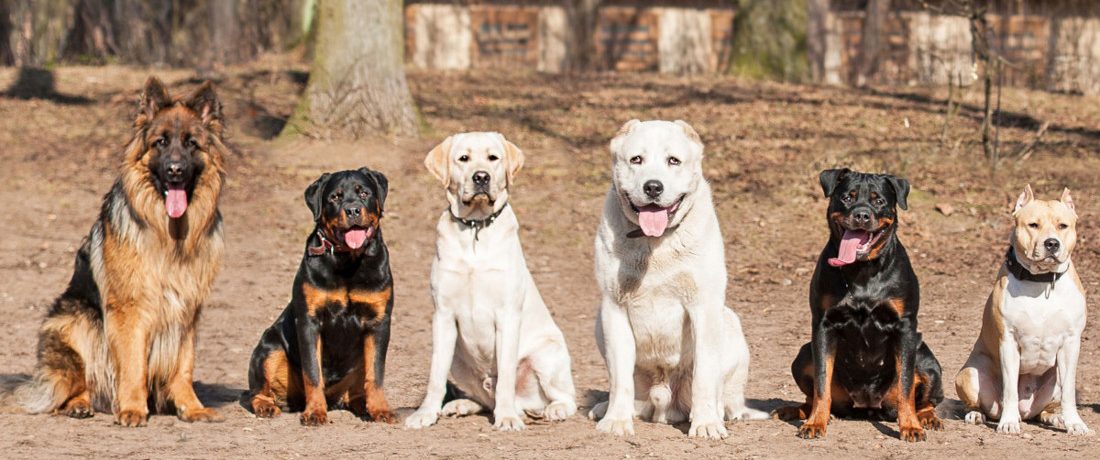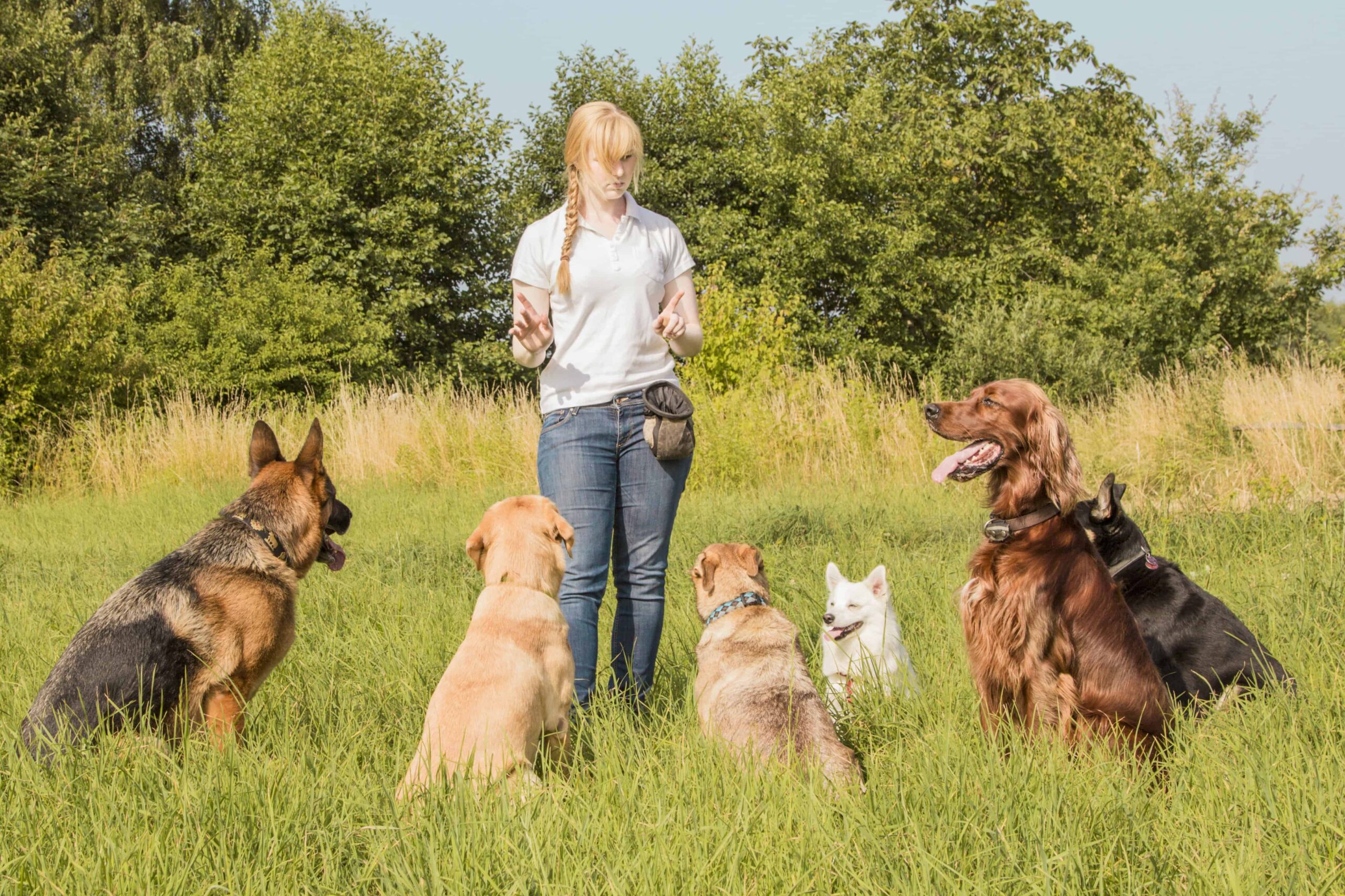The Advantages of Early Dog Training for a Well-Behaved Family pet
The Advantages of Early Dog Training for a Well-Behaved Family pet
Blog Article
Essential Tips for Effective Dog Training: A Guide for Pet Owners
Reliable canine training is a multifaceted procedure that needs a strategic strategy customized to both the pet's personality and the proprietor's objectives. Recognizing just how to browse these obstacles can significantly improve the training experience, ultimately changing the relationship in between owner and pet.
Comprehending Canine Habits
Recognizing pet dog behavior is important for efficient training and fostering an unified relationship in between dogs and their proprietors. Canines connect primarily through body movement, articulations, and actions, making it critical for owners to translate these signals accurately. Acknowledging a pet's posture, tail setting, and ear alignment can offer understandings right into its emotion. A wagging tail does not constantly show happiness; it can likewise indicate exhilaration or stress and anxiety.

Socializing plays a substantial function in pet dog habits; exposure to various atmospheres, individuals, and various other animals can substantially affect a canine's temperament. Furthermore, factors such as type attributes and private temperament should lead training approaches, as some breeds may have details behavior characteristics that necessitate customized techniques. By understanding these aspects, owners can create an encouraging atmosphere that encourages favorable habits, leading to effective training outcomes and a much deeper bond with their animals.
Developing Constant Commands
Reliable communication with your pet begins with developing constant commands. This foundational component of training is vital for promoting understanding between you and your animal. Consistency in the commands you make use of makes sure that your canine can accurately link specific words or expressions with the wanted behaviors.
When picking commands, select clear, distinctive words that are easy to claim and separate from each other. Avoid making use of similar-sounding commands that may perplex your pet. Using "sit" and "stay" is suitable, however "rest" and "struck" can lead to misunderstandings.
Furthermore, preserve the exact same tone and quantity for each and every command. Dogs are sensitive to vocal hints, so varying your tone can produce complication.
It is just as vital to make certain that all member of the family are on the same web page pertaining to the commands utilized. A united front in command usage will certainly protect against blended signals and reinforce the learning procedure.
Positive Reinforcement Strategies
The power of positive support in pet dog training lies in its ability to encourage wanted habits through incentives and appreciation. This technique is based in the concept that habits followed by favorable end results are most likely to be duplicated. By integrating favorable reinforcement into your training routine, you can properly form your canine's behavior in a positive fashion.
To carry out favorable reinforcement, it's important to determine what motivates your dog, whether it be deals with, playthings, or spoken praise. When your pet carries out a desired activity, such as remaining on command, instantly reward them with a reward or love. This association in between the command and the favorable outcome reinforces their understanding.
It's essential to timing the incentives correctly; providing the support within seconds of the preferred actions helps your pet dog make the link (dog training). Additionally, consistency is vital-- make sure that all relative utilize the very same commands and incentive systems to avoid confusion

Progressively, you can decrease the frequency of deals with as your pet learns the habits, transitioning to applaud or recurring rewards. This technique not just cultivates a strong bond between you and your canine however additionally advertises a favorable learning atmosphere, making educating a delightful experience for both.
Socialization and Interaction
Constantly revealing your pet dog to a selection of atmospheres, individuals, and various other pets is vital for their social growth. Socializing needs to start early, preferably throughout the essential home window of 3 to 14 weeks, when pups are most responsive to brand-new experiences. Nonetheless, older pets can additionally gain from recurring socializing efforts.
Present your pet to various setups, such as parks, pet-friendly shops, and metropolitan areas. This exposure helps them adjust to numerous stimulations, minimizing stress and anxiety and concern actions. Motivate positive communications with various other pet dogs and people, guaranteeing that these encounters are controlled and safe to cultivate self-confidence.
Utilize organized playdates with genteel canines, as this can boost your pet dog's social skills and show them suitable actions. Obedience classes and training sessions additionally supply excellent possibilities for socialization, permitting your dog to connect with others in a supervised you can look here setting.
Monitor your pet dog's body movement throughout communications, as this will aid you evaluate their convenience level. Progressively boost exposure to even more challenging scenarios while making sure that each experience declares. A well-socialized canine is more probable to show well balanced behavior, making them a pleasure to have in any setup.
Addressing Typical Training Challenges
Every pet dog owner will run into training difficulties at some factor, despite their dog's age or socialization degree. Identifying usual problems such as stubbornness, interruptions, and fearfulness can assist in creating reliable techniques for enhancement.

Distractions during training sessions can derail focus. To fight this, start training in a peaceful atmosphere with marginal stimulations. Gradually introduce distractions as the dog becomes more skilled in commands. Short, regular training sessions are additionally reliable in keeping focus.
Fearfulness can impede a dog's learning process. Gradual desensitization to the source of anxiety, matched with favorable support, can help relieve anxiety. Patience is important; never ever require a pet dog right into a scenario that creates distress, as this might exacerbate the issue.
Inevitably, understanding and attending to these usual challenges with a structured method will cultivate a more productive training experience, strengthening the bond between canine and owner while promoting efficient learning.
Conclusion
In summary, successful pet training counts on an extensive understanding of canine habits, the establishment of constant commands, and the application of positive reinforcement strategies. Socialization plays an important role in creating well-adjusted animals, while addressing typical training obstacles needs perseverance and adaptability. By implementing these vital strategies, animal proprietors can foster a strong bond with their pets and promote desirable actions, ultimately causing an unified relationship between people and their canine friends.
Understanding pet dog actions is important for efficient training and cultivating a harmonious relationship between pooches and their proprietors.Socialization plays a significant function in pet dog actions; exposure to various environments, people, read this and various other pets can dramatically impact a canine's character.The power of positive reinforcement in pet dog training exists in its capacity to urge desired behaviors through rewards and praise. By incorporating positive reinforcement into your training program, you can efficiently shape your pet dog's habits in a useful way.
In recap, successful pet dog training relies on a comprehensive understanding of canine behavior, the establishment of consistent commands, and the application dig this of positive reinforcement techniques.
Report this page